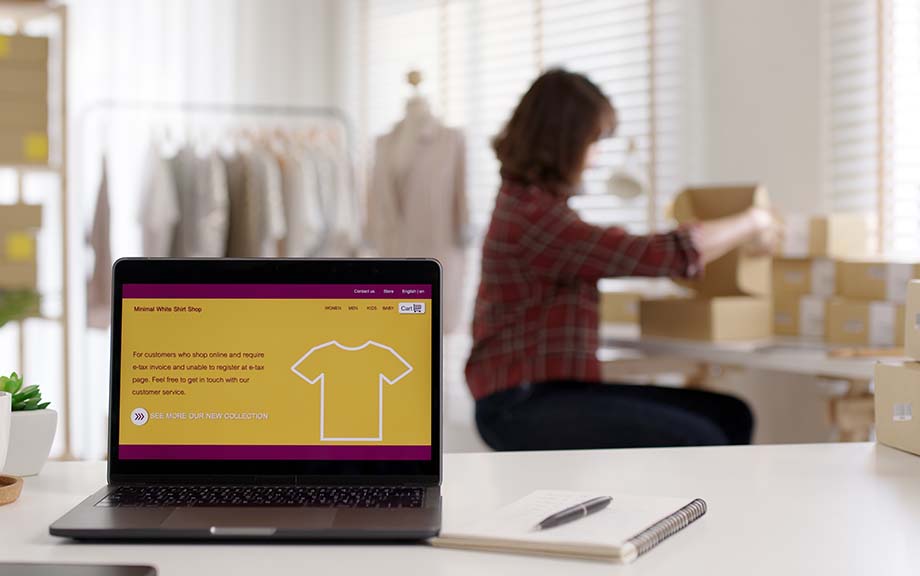The Internet is not going away. Ever. — FYWN, September 2011
Ten years later, it’s even more true. The Internet is now so woven into the fabric of everyday life it’s difficult to remember a time when it wasn’t. Imagine if you didn’t have internet technology during the height of the COVID-19 pandemic, which allowed so many businesses to keep running. Where would you be? Answer: 1918.
Yet, not everyone sees the advantages of utilizing the Internet to its full potential, as the amount of small businesses without a website shows. Ten years ago, seven out of ten eschewed their own site. Today, that number is still more than a third (36%). Why are so many small businesses continuing to go without a website? It’s complicated.
Owners will say they don’t need one because it’s irrelevant to their type of business, or that their business is too small, or a website costs too much. Or, the worst reason of all, that they have social media accounts.
Balderdash! Let’s shoot these arguments down right now.
1) A website is irrelevant to your business. “I get my customers through word of mouth” is a common explanation. What happens when all those mouths close? In other words, this is not a consistent or dependable method to gain customers. You have zero control over other people and whether they will recommend you or not.
Or, your business is too “niche” to have enough people looking for you online. But, someone will be sooner or later, subsequently you will be surprised how many people are actually looking for you for reasons you did not consider. If you’re in a niche type of business, surely one conversion will cover the cost of a website.
2) Your business is too small. Is there such a thing? Your business – your life’s blood – is a big deal to you. That’s why you need to make it a big deal to others. Having a website not only shows that your business is legitimate, but also that it exists. Yes, there is a price tag to get and keep a website, but consider the cost of not having one in a society that averages spending more than three hours per day online. You’re missing potential that you (currently) can’t even imagine.
3) Websites cost too much. It’s been said that you get what you pay for, and website pricing is no different. This doesn’t mean that websites are prohibitively expensive, it means you should pay an amount relative to your expected ROI. Find out more about the cost of your site versus the price here.
If you spend $500 on a website, expect not a whole lot in return. If you spend $5000, your ROI will exceed what you spent and then some. The caveat is that you use the website to its potential, which means promoting it, keeping it working at a high level, as well as keeping it secure. A website is a vital part of your marketing strategy, you can spend money on it now or later, but either way you will – if you’re serious about growing your business.
4) You use social media as your website. Sure, social media is free (kind of) and you can easily post across different platforms to get exposure, right? So, how’s that working out for you? Unless you’re spending money to market your business through social media, odds are not so good. It’s been years since free social media marketing worked, paid promotion is the only way to gain any traction.
You should be marketing your own website instead, where you have much more control. Does social media let you post anything you want? Add links? Qualify your visitors (SEO)? Showcase your products? Process transactions? For the most part, the answer is no. On your website, the answer is always YES.
4.1) Your competition has one. This may be the most important reason of all. You could not stay in business without knowing what your competitors are doing. Thus, if they have a website while you continue to go without one, you’re at a disadvantage — and giving them your slice of the pie.
The majority of businesses who have sites expect growth in the next year, while their counterparts without one do not. The conclusion isn’t hard to fathom: having a website equals confidence, which equals growth. Most of all, having a website equals profit.
Other benefits of having a website include:
- Increased credibility
- A more accessible business
- Improved visibility
- Google or Bing search viability (get found easier, online and off)
- Better control over interactions
There’s simply no reason not to have a website for your business, your customers or clients expect it and deserve it. Not to mention, websites are now more robust, secure and affordable. And they’re so much more capable.
In today’s market, it’s imperative to have a website to promote your business online rather than offline, because that’s where the revenue is. People aren’t looking at a phonebook to find you, they’re looking at their phones – and if they don’t see you there, they never will.




